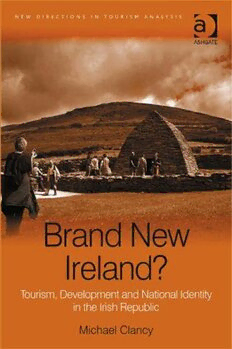
Brand New Ireland? (New Directions in Tourism Analysis) PDF
176 Pages·2009·1.95 MB·English
Most books are stored in the elastic cloud where traffic is expensive. For this reason, we have a limit on daily download.
Preview Brand New Ireland? (New Directions in Tourism Analysis)
Description:
What role does the state have over national development within an increasingly globalized economy? Moreover, how do we conceive 'nationality' during periods of rapid economic and social change spurred on by globalization? By examining tourism in the Republic of Ireland over the past 20 years, Michael Clancy addresses these questions of national identity formation, as well as providing a detailed understanding of the political economy of tourism and development. Firstly, he explores the role that tourism has played in Ireland's dramatic economic transformation from the 'poor man of Europe' to one of the richest. While many lessons have been taken from the so-called 'Celtic Tiger' to be applied to other developing nations, the role that tourism has played has been largely ignored. This book argues that tourism played an important part in this success. Clancy also locates tourism within broader theoretical debates regarding development, specifically on the role of the state and globalizing industries. Separate industry chapters (on hotels and airlines) show that globalization proceeds in an uneven manner, offering different opportunities and constraints for development. The book also uses tourism as a lens for observing national identity formation in a period of rapid change. Tourism markets the nation as a commodity, not just for tourists, but for its own citizens. Ireland has been at the forefront of branding the nation, introducing 'Tourism Brand Ireland' in 1996. Tracing the evolution of this brand allows an examination of how the nation conceives of itself.
See more
The list of books you might like
Most books are stored in the elastic cloud where traffic is expensive. For this reason, we have a limit on daily download.
